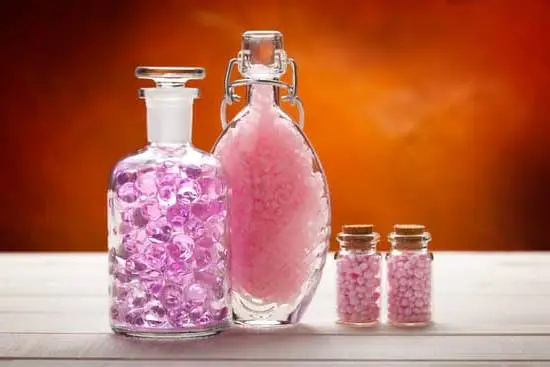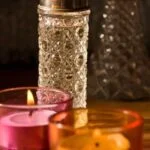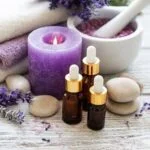Can you use bath and body aromatherapy oil in diffuser? Aromatherapy is a practice that has been used for centuries to promote relaxation, improve mood, and alleviate stress. Essential oils are a key component of aromatherapy, often used in diffusers to disperse their aromatic properties into the air. In this article, we will explore the concept of aromatherapy, the different types of aromatherapy oils available for bath and body use, and the role of diffusers in dispersing essential oils.
Aromatherapy oils come in various types, each with its own unique scent and potential benefits for mental and physical well-being. From lavender and peppermint to eucalyptus and tea tree oil, there are numerous options to choose from when it comes to incorporating aromatherapy into your self-care routine. These oils can be used in baths, massages, or even applied directly to the skin, but using them in a diffuser allows for easy and continuous dispersal throughout a space.
Diffusers play a crucial role in aromatherapy by breaking down the essential oils into tiny molecules that can be easily dispersed into the air. This process allows for inhalation of these molecules, which is believed to have therapeutic effects on the body and mind. Whether you prefer a ultrasonic diffuser or a nebulizing diffuser, understanding how these devices work is essential to maximizing the benefits of using bath and body aromatherapy oils in a diffuser.
Understanding Aromatherapy Oils
Aromatherapy oils have gained popularity for their therapeutic benefits and pleasant fragrances. These essential oils are derived from various plants, flowers, and herbs, each offering unique properties that can positively impact physical and emotional well-being. When it comes to bath and body use, there is a wide variety of aromatherapy oils to choose from, each serving different purposes and catering to individual preferences.
Some common types of aromatherapy oils suitable for bath and body use include:
- Lavender Oil: Known for its calming and soothing properties, lavender oil is often used to promote relaxation and improve sleep quality.
- Peppermint Oil: With its invigorating scent, peppermint oil can help alleviate headaches, muscle aches, and provide a refreshing sensation when added to bath water or used in body care products.
- Chamomile Oil: Chamomile oil is prized for its anti-inflammatory and skin-soothing properties, making it a popular choice for bath soaks and skincare formulations.
Additionally, essential oils like eucalyptus, rosemary, citrus oils (such as lemon and orange), and tea tree oil are also commonly used in bath bombs, shower steamers, massage oils, lotions, and scrubs. Each type of aromatherapy oil offers its own set of benefits, making it important to consider individual needs and preferences when selecting the right oil for bath and body use.
Whether you prefer floral scents for relaxation or uplifting citrus notes for an energy boost, there is an essential oil suited to your desired effect. It’s important to note that not all essential oils are safe for direct skin contact at full strength. Dilution with carrier oils or using them in products intended specifically for bath and body use is recommended to avoid skin irritation.
In summary, understanding the different types of aromatherapy oils available for bath and body use allows individuals to harness their therapeutic benefits while enjoying indulgent self-care routines at home. The right choice of essential oil can enhance the overall bathing or skincare experience by promoting relaxation, rejuvenation, stress relief or providing other specific wellness benefits. Therefore, knowing the properties of various aromatherapy oils will enable users to make informed decisions about incorporating them into their self-care regimen effectively.
Diffusers 101
Diffusers play a crucial role in aromatherapy by dispersing essential oils into the air and creating a relaxing and therapeutic environment. These devices are designed to break down the essential oils into tiny molecules that can be easily dispersed into the air, allowing for convenient inhalation and absorption of their beneficial properties. There are different types of diffusers available, including ultrasonic, nebulizing, heat, and evaporative diffusers.
Role of Diffusers in Aromatherapy
Diffusers are an essential tool in aromatherapy as they help to effectively disperse the aroma of essential oils throughout a space. By releasing these aromatic molecules into the air, diffusers can promote relaxation, improve mood, and provide various other health benefits. Additionally, diffusers can also help to purify and humidify the air in your surroundings.
Function of Diffusers
The function of a diffuser depends on its type. Ultrasonic diffusers use water and ultrasonic waves to disperse essential oil particles as a fine mist into the air. Nebulizing diffusers do not require water and release pure essential oil particles into the air.
Heat diffusers use heat to evaporate the essential oils while evaporative diffusers use a fan to blow air through a pad or filter containing the essential oils. Each type has its advantages and drawbacks, so it’s important for users to select one that suits their needs.
Can You Use Bath and Body Aromatherapy Oil in Diffuser
Aromatherapy has gained popularity as a natural remedy for various health and wellness concerns. It involves the use of essential oils derived from plants to promote physical, mental, and emotional well-being.
Many people enjoy incorporating aromatherapy into their daily self-care routines, often using bath and body aromatherapy oils to enhance their overall relaxation and rejuvenation experience. A common question that arises is whether it is safe and effective to use these bath and body aromatherapy oils in a diffuser.
Understanding the Use of Bath and Body Aromatherapy Oils in Diffusers
Bath and body aromatherapy oils are specifically formulated for topical application during baths, massages, or skincare routines. These oils are often diluted with carrier oils to ensure they are safe for direct contact with the skin. However, when it comes to using them in a diffuser, certain considerations must be taken into account due to the nature of the diffusion process.
It is important to note that not all bath and body aromatherapy oils are suitable for use in diffusers. Some of these oils may contain ingredients that could be harmful when inhaled over prolonged periods. Additionally, the viscosity of bath and body oils may vary compared to traditional essential oils designed for diffuser use, which can impact their ability to disperse effectively into the air.
Safety Precautions and Effectiveness
Can You Use Bath and Body Aromatherapy Oil in Diffuser
without posing any harm while also providing therapeutic benefits when dispersed into the air. However, it is recommended to consult with an aromatherapy specialist or healthcare professional to determine which bath and body aromatherapy oils are safe for diffuser use based on individual health conditions or sensitivities.
Benefits of Using Bath and Body Aromatherapy Oils in Diffuser
When it comes to using bath and body aromatherapy oils in a diffuser, there are several potential benefits to consider. One of the main advantages is the ability to create a soothing and relaxing environment in your home or workspace.
Aromatherapy oils have been used for centuries to promote relaxation, reduce stress, and improve overall well-being. When used in a diffuser, these oils can help to disperse their aromatic properties throughout a room, allowing you to enjoy their therapeutic benefits through inhalation.
In addition to promoting relaxation, using bath and body aromatherapy oils in a diffuser can also help purify the air. Many essential oils possess natural antibacterial and antiviral properties, which can help cleanse the air and eliminate airborne pathogens. This not only creates a healthier indoor environment but can also help prevent the spread of illness.
Furthermore, using bath and body aromatherapy oils in a diffuser can enhance mood and mental clarity. Different essential oils have been found to have mood-boosting properties, such as uplifting citrus scents or calming floral fragrances. By diffusing these oils, you can create an atmosphere that supports emotional well-being and mental focus. Overall, incorporating bath and body aromatherapy oils into your diffuser routine can contribute to a more serene, harmonious living space.
Risks and Precautions
Using bath and body aromatherapy oils in a diffuser can be a great way to enjoy the benefits of essential oils throughout your home. However, it is important to understand the potential risks and take proper precautions when using these oils in a diffuser. Here are some important factors to consider:
1. Quality of Oils: Not all bath and body aromatherapy oils are suitable for use in a diffuser. It is important to ensure that the oils you choose are pure and high-quality, free from any additives or synthetic ingredients. Look for oils that are specifically labeled as suitable for use in diffusers.
2. Allergies and Sensitivities: Before using any new essential oil in a diffuser, it is crucial to perform a patch test to check for any allergic reactions or sensitivities. Some individuals may have adverse reactions to certain essential oils, so it’s essential to exercise caution and be mindful of potential allergic responses.
3. Proper Dilution: When using bath and body aromatherapy oils in a diffuser, it’s essential to dilute the oils with water according to the manufacturer’s guidelines. Using undiluted essential oils can be too potent and may cause irritation to the respiratory system or skin.
4. Safe Usage Guidelines: Always follow the instructions provided by the manufacturer of both the diffuser and the aromatherapy oil. Overuse of essential oils in a diffuser can lead to overpowering scents, which may cause discomfort or aggravate existing respiratory conditions.
Overall, by being aware of these risks and taking proper precautions, you can safely enjoy the benefits of using bath and body aromatherapy oils in a diffuser while creating a pleasant and soothing environment within your home. Remember that individual experiences with essential oils can vary, so it’s always best to start with small amounts and monitor your body’s reactions accordingly.
Tips for Using Bath and Body Aromatherapy Oils in Diffuser
When using bath and body aromatherapy oils in a diffuser, there are several tips and best practices to keep in mind to ensure a safe and effective experience. One important tip is to dilute the essential oils with water before adding them to the diffuser. This not only helps to disperse the oil more effectively but also prevents any potential skin irritation or sensitivities that can arise from undiluted use.
Another tip for using bath and body aromatherapy oils in a diffuser is to start with a lower concentration of oil and adjust according to personal preference. It’s important to remember that a little goes a long way with essential oils, so starting with just a few drops and then increasing as needed can help prevent overpowering scents and potential discomfort from strong aromas.
Additionally, it’s recommended to clean the diffuser regularly when using bath and body aromatherapy oils. Over time, essential oil residue can build up inside the diffuser, affecting its performance and potentially causing cross-contamination of scents. Regular cleaning with warm water and a mild detergent can help maintain the effectiveness of the diffuser.
Conclusion
In conclusion, the use of bath and body aromatherapy oils in a diffuser can be a safe and effective way to experience the benefits of essential oils. While there are specific types of essential oils that are designed for use in bath and body products, many of these oils can also be used in diffusers. It is important to carefully read the labels and instructions on the aromatherapy oils to ensure they are suitable for use in a diffuser.
When using bath and body aromatherapy oils in a diffuser, individuals may experience a range of benefits including relaxation, stress relief, improved mood, and potential health benefits. The dispersal of these oils into the air can create a soothing and aromatic environment that promotes overall wellbeing.
However, it is crucial to exercise caution when using any type of essential oil in a diffuser. Some individuals may be sensitive or allergic to certain essential oils, so it is important to perform a patch test before using them in larger quantities.
Additionally, always follow the manufacturer’s guidelines for dilution and usage to prevent any potential risks or adverse reactions. By following proper precautions and guidelines, individuals can safely enjoy the benefits of using bath and body aromatherapy oils in a diffuser.
Frequently Asked Questions
Can You Use Bath and Body Works Wallflower Oil in a Diffuser?
No, Bath and Body Works Wallflower oil is specifically designed for use in their plug-in wallflower diffusers. Using it in a regular diffuser can cause damage or malfunction.
Can You Use Aromatherapy Oils in a Diffuser?
Yes, aromatherapy oils are designed to be used in diffusers to release their pleasant and therapeutic aromas into the air. Just be sure to follow the instructions for your specific diffuser model.
What Essential Oils Should Not Be Used in a Diffuser?
Essential oils that should not be used in a diffuser include thick oils like vetiver and sandalwood, as they can clog the machine. Other oils, like wintergreen and eucalyptus, can be too strong when diffused and may cause irritation. Always research each oil before use.

Are you looking for a natural way to improve your health and wellbeing?
If so, aromatherapy may be the answer for you.





